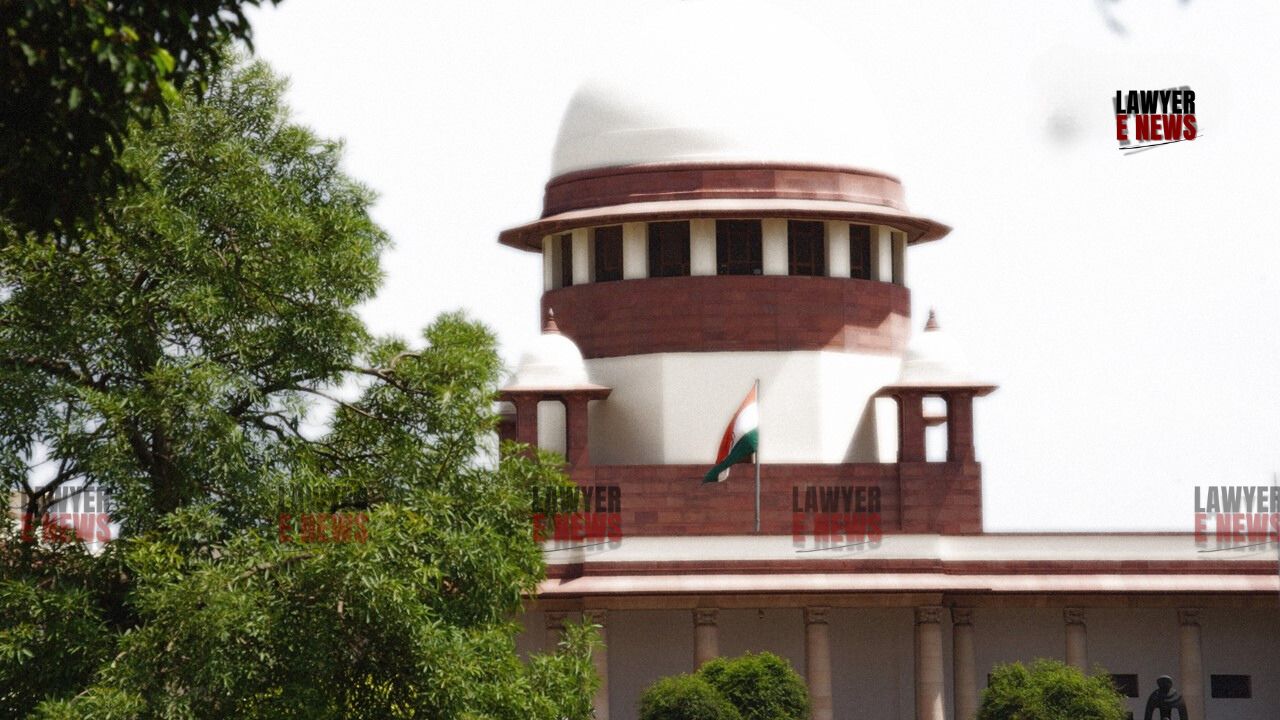-
by Admin
15 February 2026 5:35 AM



Supreme Court of India overturned a 1996 conviction in Karakkattu Muhammed Basheer v. The State of Kerala (Criminal Appeal No. 291 of 2023), acquitting the appellant of murder charges due to insufficient evidence. The judgment emphasized the high standard required for circumstantial evidence cases, concluding that the prosecution failed to present an unbroken chain of evidence linking the appellant to the crime.
The case concerns the 1989 murder of Gouri, whose body was found in a paddy field near the house of Accused No. 2, where the prosecution alleged the murder took place. Muhammed Basheer (Accused No. 1) and Accused No. 2 were charged under Sections 302 (murder) and 201 (causing disappearance of evidence) of the IPC. While the Sessions Court convicted both defendants, the High Court of Kerala upheld only Basheer’s conviction for murder, sentencing him to life imprisonment and seven years for evidence tampering. Basheer subsequently appealed to the Supreme Court.
Justice Augustine George Masih, delivering the judgment, scrutinized the evidence and underlined the stringent requirements for conviction based on circumstantial evidence, known as the “panchsheel principles.” The Court highlighted several deficiencies in the prosecution’s case:
Unsubstantiated Presence at the Crime Scene: The prosecution relied on witnesses PW14 and PW20 to establish Basheer’s presence at Accused No. 2’s house, where the murder allegedly occurred. PW14 claimed to have seen Basheer entering the house at 11:30 PM on the night of the murder, but he admitted only seeing Basheer from behind. PW20 testified seeing Basheer leaving town early the next morning but could not confirm he was coming from Accused No. 2’s house.
"Circumstantial evidence must form such a chain of events as would permit no conclusion other than guilt," observed the Court, finding that Basheer’s presence was not conclusively established.
Last-Seen Theory Insufficiently Supported: The Court noted that Gouri was last seen leaving Accused No. 2’s house around 9:00 PM, based on testimony from her family and Accused No. 2’s children. Since the prosecution could not prove that Gouri remained at the house, the last-seen theory, often used to connect an accused to a crime, was inapplicable.
Inconsistencies in Recovery of Evidence: The prosecution presented blood-stained items recovered from Basheer’s possession and a coconut scraper, allegedly used in the murder. However, PW18, the witness to the recovery, testified that a police officer had taken the items from his shop days before the official recovery, casting doubt on the chain of custody and the authenticity of the evidence.
"The chain of circumstances presented by the prosecution is fragmented, with significant gaps and unverified recoveries," the Court stated, concluding that evidence was not gathered in a manner consistent with proving guilt beyond reasonable doubt.
Doubt Cast on Witness Testimonies and Timeline: The Court emphasized the lack of reliable eyewitnesses or physical evidence confirming Basheer’s presence with Gouri around the time of her death. The appellant’s alleged journey to dispose of the body was also improbable, as no witnesses saw him carrying the body through a busy area near a 24-hour sawmill.
The Supreme Court concluded that the evidence failed to meet the standard for circumstantial cases, which requires a clear, uninterrupted chain of events pointing exclusively to the accused's guilt. Given the gaps in the prosecution’s case, the Court acquitted Muhammed Basheer of all charges, ordering his immediate release.
Date of Decision: November 5, 2024
Karakkattu Muhammed Basheer VS The State of Kerala
